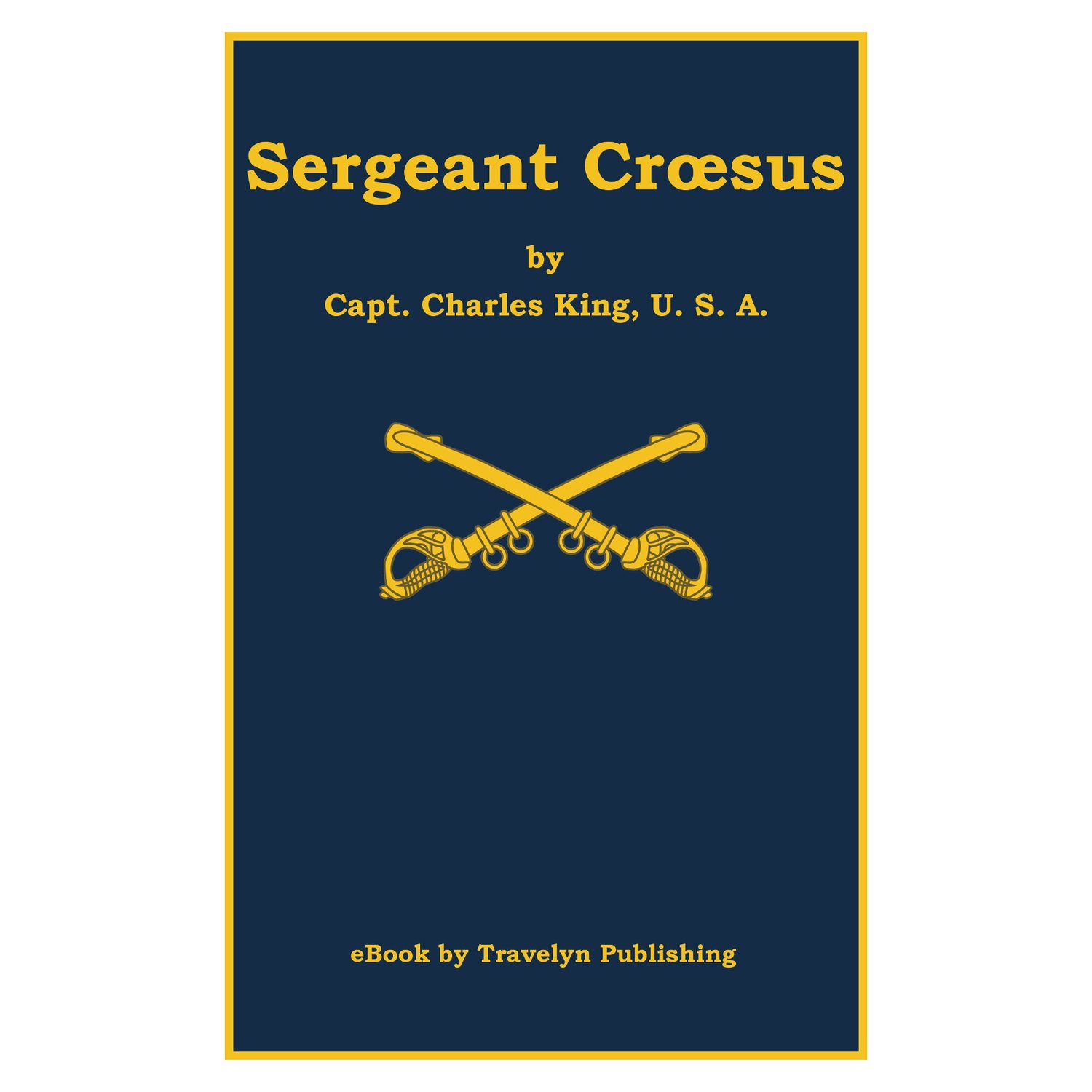
Sergeant Crœsus
No writer is better than Charles King at bringing the reader vividly and realistically into the life of a U. S. Army soldier during the late-19th-early-20th century. Because of his personal experience as an officer in the conflicts of that period, he not only gets the historical details correct, but also the settings, moods, and day-to-day life, including the personal, romantic, financial, and family life of the soldiers living on those far-flung military posts along the western frontier.
Sergeant Crœsus, published originally in 1893, gives the reader a different perspective, that of an immigrant recruit who joins the U. S. Cavalry during the uprisings of the Plains Indians of the Wild West during the 1870s. Recruiters didn’t care that he couldn’t speak a word of English. These recruits were considered little more than cannon fodder, sure to either desert for western gold mines or be scalped by Indians. The American military has always been full of immigrants, military service being considered an honorable route to citizenship, and it sometimes happens that the background of these immigrants is a mystery. Such is the case with the hero of this novel.
Preparing old books for digital publication is a labor of love at Travelyn Publishing. We hold our digital versions of public domain books up against any others with no fear of the comparison. Our conversion work is meticulous, utilizing a process designed to eliminate errors, maximize reader enjoyment, and recreate as much as possible the atmosphere of the original book even as we are adding the navigation and formatting necessary for a good digital book. While remaining faithful to a writer’s original words, and the spellings and usages of his era, we are not above correcting obvious mistakes. If the printer became distracted after placing an ‘a’ at the end of a line and then placed another ‘a’ at the beginning of the next line (they used to do this stuff by hand you know!), what sort of mindless robots would allow that careless error to be preserved for all eternity in the digital version, too? Not us. That’s why we have the audacity to claim that our re-publications are often better than the originals.
